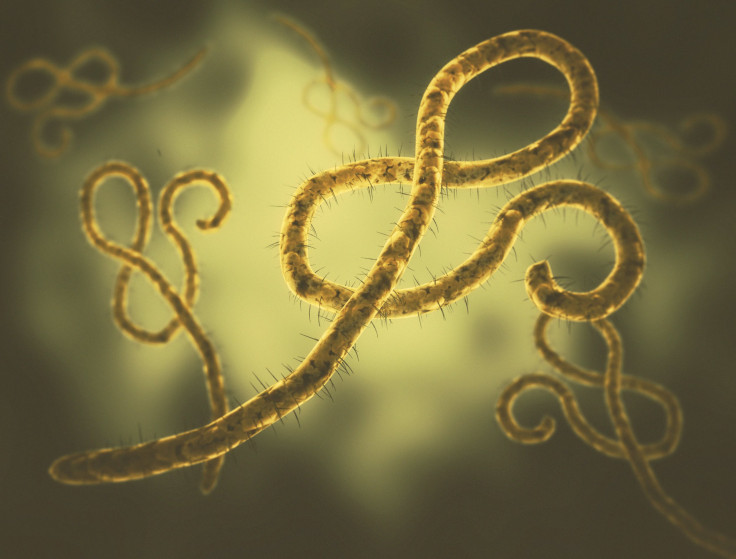The Eyes Have It: Ebola Detected In Survivor's Eye For The First Time, No Present Risk Reported

In news that’s sure to excite movie screenwriters but terrify everyone else, doctors at Emory University Hospital report having discovered traces of Ebola (EBOV) in the eye of one of its survivors, despite it already having been flushed out of his blood months prior.
Detailing the incident in the New England Journal of Medicine, the doctors note that this is the first time such a discovery has been made. Previous research however has found that survivors of the often deadly virus, which most recently devastated parts of West Africa throughout much of 2014, have occasionally complained of vision problems and inflammation after recovery.
As the doctors explain, that was the exact situation presented to them as the now 44-year-old survivor, identified as Dr. Ian Crozier by the AP, returned to Emory in November of last year with complaints of back pain and a burning sensation in his eyes, among others. Crozier had been first diagnosed with Ebola Virus Disease (EVD) in early September while he was working as part of an Ebola treatment unit in Sierra Leone, with Crozier being transferred to Emory University Hospital in Atlanta, Georgia four days later. After treatment with an experimental drug and round the clock support, Crozier gradually recovered.
Though Crozier was sent home after examination in November, he returned a month later with worsening swelling and difficulty seeing in his left eye. The doctors then took a sample of ocular fluid from the left eye, finding a positive indication of the virus, about 14 weeks after having been discharged from Emory. As the authors note, previous reports have documented traces of the related Marburg virus in survivors’ eyes and it is known that Ebola can remain in semen for several months. They suspect that the eye’s lower barrier of immunity provides an opportunity for Ebola to persist.
Luckily for us, the terror stops here, as examination of Crozier’s tears and surrounding tissue near the eye failed to find any trace of the virus, with doctors taking proper precautions handling his fluid samples. Any and all who interacted with Crozier were observed for several weeks to ensure safety as well. "It is reassuring that samples of conjunctivae and tears tested negative for EBOV, a finding that supports previous studies suggesting that patients who recover from EVD pose no risk of spreading the infection through casual contact,” the authors wrote.
Crozier himself is continuing to recover; with his vision now returned (he is a co-author of the report). Though obviously important for further understanding the virus, the case report is undoubtedly more intellectual curiosity than a harbinger of doom.
Of much more relevant (and happier) news is the fact that the number of current Ebola cases across Africa continue to drop, with only 18 total cases reported between Guinea and Sierra Leone last week, according to the World Health Organization.
In that sense, Crozier’s case is a footnote to a horrific chapter that is thankfully ending.
Source: Varkey B, Shantha J, Crozier I, et al. Persistence of Ebola Virus in Ocular Fluid during Convalescence. New England Journal of Medicine. 2015
Published by Medicaldaily.com



























